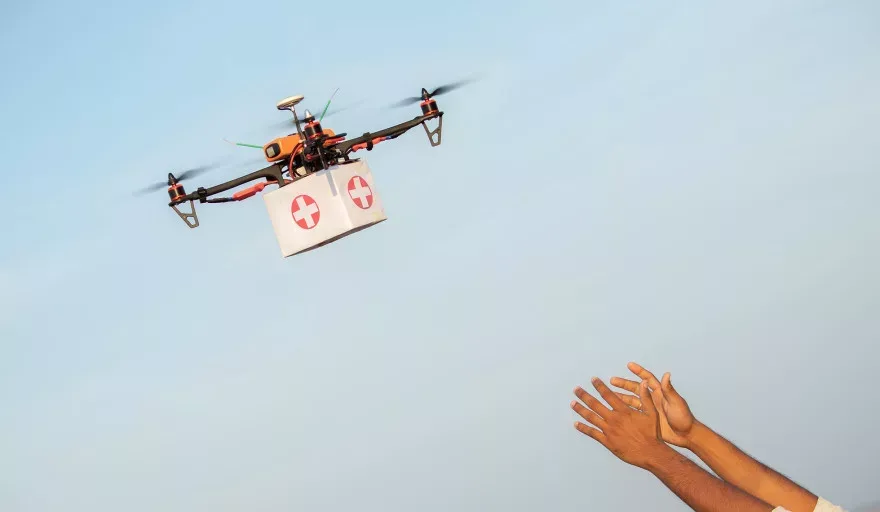Across African industry, the use of drones is growing. We take a look at the advantages of such technological tools, their versatility across sectors, and contribution to continental development.
EYE IN THE SKY
Africa is a vast continent made up of a broad range of urban centres, rural landscapes, environments and climates.
For many industries, this variation in geography poses obstacles when it comes to transport, delivery or general operations, and in light of this, the latest technological tools become essential to the success of services, companies and organisations continent-wide.
Drones in particular are changing the face of industries across Africa. From use in the military to healthcare, land management and mining, the aerial tools are unique in their ability to monitor visuals beyond the human eye, access remote regions or dense forests with ease, and even deliver packages to distant locations that remain difficult to access by foot or wheeled vehicles.
ADVANCED AND VERSATILE
The drone and unmanned aerial vehicle (UAV) industry is quickly becoming recognised across Africa as a rapidly growing space. Companies and organisations have begun to take into account the value and benefits of utilising drones for commercial and non-commercial purposes, across almost all sectors.
In healthcare for example, drones are the perfect vessels for supply delivery to remote locations or areas that land vehicles cannot easily traverse. And when it comes to their monitoring ability, drones make perfect scouts for the study and prevention of large-scale problems such as malaria outbreaks stemming from malaria mosquito breeding grounds. Here, drones can be used to indicate future problems, helping prevent them before they begin.
Great swathes of land can be monitored for infrastructure development, or natural disaster study, with data gathered 30 times faster than via land vehicles, and with greater visual accuracy than satellite imagery.
Ignoring land barriers, drones have the capability to track and monitor at any time of day or night, while being equipped with the latest optical technology, LIDAR mapping and online connection. On top of this, since drones may be used from a vantage point, office or even the home, while limiting financial costs and mitigating personal injury, they become an obvious choice over any physical human operative in the field.
With expansive rural areas and communities therein, the modernisation of Africa has seen an increase of drone use and has overcome several socio-economic and environmental obstacles along the way. Where some rural areas have poor road infrastructure, water barriers or are placed within densely forested regions, drones provide logistical services to deliver supplies where it would otherwise prove difficult to via more traditional methods.
Agriculture, one of the largest industries across the collective continent, is being revolutionised by drone usage through crop monitoring and environmental analysis, covering vast farmlands in minimal time, and relaying important information to farmers such as how much and when to use insecticide or water on the fields.
PRESENT BARRIERS
One prominent challenge for drone usage stems from the need for a steady level of connection in order to operate. To this end, digital infrastructure becomes a key part of drone application and the resulting advantages and development.
On top of this, government regulations must be taken into account. The regulation of aerial data exists due to the protection of privacy, with drone and information security becoming a key requirement for drone operators to comply with. Despite this, and because the use of drones and UAVs is relatively new, global and pan-African regulations remain in continual development. The regulations differ too across African countries; for North African countries such as Algeria, Morocco and Egypt, private drones are prohibited, whereas in other areas such as Liberia, there is no such law.
Despite these differences, it is safe to say that drones are not leaving the African industrial realm. Increasing the reach, sight, data gathering and overall efficiency of monitoring and study, they continue to be the latest and most useful asset for a wide variety of sectors, helping to drive forward African development for a technological future.






























